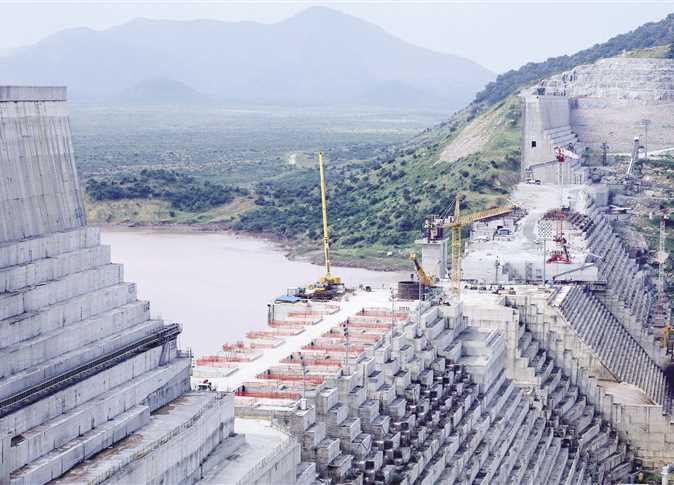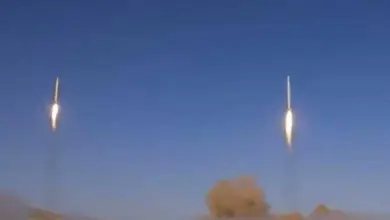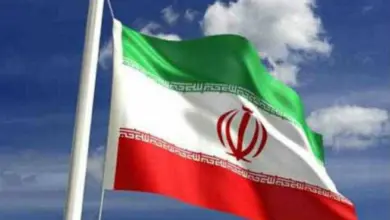
Egypt will participate in the upcoming ministerial meeting over the Grand Ethiopian Renaissance Dam (GERD) in Washington on February 27 and 28, despite an earlier announcement from Ethiopia that representatives from Addis Ababa would not attend, a statement from Egypt’s Foreign Ministry said.
Spokesperson for the Foreign Ministry Ahmed Hafez stressed that Egypt’s foreign and water resources and irrigation ministers would take part in the meeting, in appreciation of the constructive role played by the US administration over the past months in mediating between Egypt, Ethiopia, and Sudan as the three countries struggled to reach a final agreement on the Grand Ethiopian Renaissance Dam, construction of which began nine years ago.
Hafez added that Egypt’s participation in the meeting comes in line with the Egyptian approach, which he says reflects “goodwill” and a “sincere desire” to reach a final agreement on filling and operating the contentious Renaissance Dam.
Egypt’s government previously blamed Ethiopia’s “intransigence” on the failure of earlier talks in Addis Ababa, and has denied that the country was under pressure to waive some of its demands during January negotiations held in Washington.
In response to a question from a reporter about Ethiopia’s announcement that it would not participate in the upcoming meeting, Hafez said that Egypt was committed to negotiations sponsored by the US and the World Bank.
He added that the aim of the meeting Thursday and Friday is to put the final touches on the agreement reached by Egypt, Sudan and Ethiopia in previous meetings on the filling and operation of the dam.
Ethiopia said on Wednesday it had requested the US to postpone the last round of talks scheduled on February 27 and 28.
“We have asked that we need more time for consultation,” Bizuneh Tolcha, spokesman for Ethiopia’s ministry of water, irrigation and energy told Reuters, without providing details.
The Ethiopian water ministry issued a statement explaining that it would skip the tripartite GERD negotiations with Sudan and Egypt because “Ethiopia did not conclude its discussions locally with the relevant authorities on the dam.”
Egypt’s Minister of Irrigation and Water Resources Mohamed Abdel-Ati, and his accompanying technical delegation, arrived in the US capital on Tuesday to continue negotiations over the GERD.
Following the latest round of negotiations, Egypt’s Foreign Minister Sameh Shoukry said that the final agreement would be signed between Egypt, Ethiopia, and Sudan before the end of February.
Negotiations between Egypt, Sudan and Ethiopia under the auspices of US Treasury Secretary Steven Mnuchin and World Bank representatives started on November 6, 2019, and brought together the foreign ministers of the three countries in Washington.
The meetings discussed regulations for operating and filling the GERD in various stages, including during periods of drought, as well as long-term operating rules and coordination between the three countries and a binding mechanism to resolve any disputes that may arise over the interpretation or application of the agreement.
In mid-February. US Secretary of State Mike Pompeo and Ethiopian Prime Minister Abbey Ahmed met in Addis Ababa to discuss the final draft agreement over the GERD.
During a press conference with Ahmed, Pompeo said at the time that more still needs to be done before a final deal can be reached, according to Al-hurra channel.
Pompeo also said at the time that US President Donald Trump considered it a priority to continue working with Egypt, Sudan and Ethiopia in order to reach an agreement satisfactory to all three countries.
“Our mission is not to impose a solution, but to monitor and bring the three countries together. We see each country is interested in the concerns of the other two countries,” Secretary Pompeo added.
Egypt, which relies considerably on fresh water from the Nile, has voiced fears that the GERD would negatively impact the country’s water supply, especially in light of overpopulation fears, and has insisted that measures be put in place to protect downstream countries in case of drought during the filling process at the dam.
Ethiopia, on the other hand, has stressed the importance of the project to bolstering the economy in the country, where more than half of the population currently lives without access to electricity.
Edited translation from Al-Masry Al-Youm




